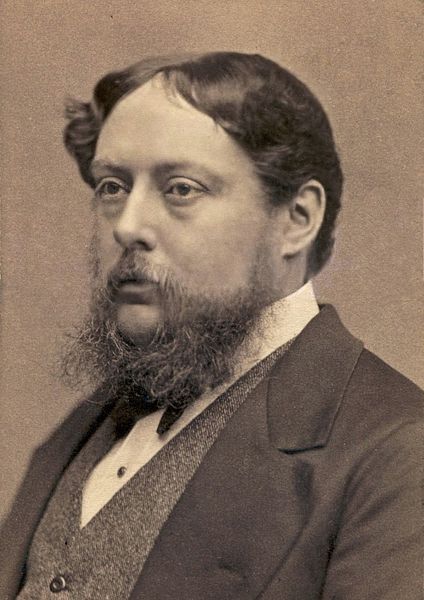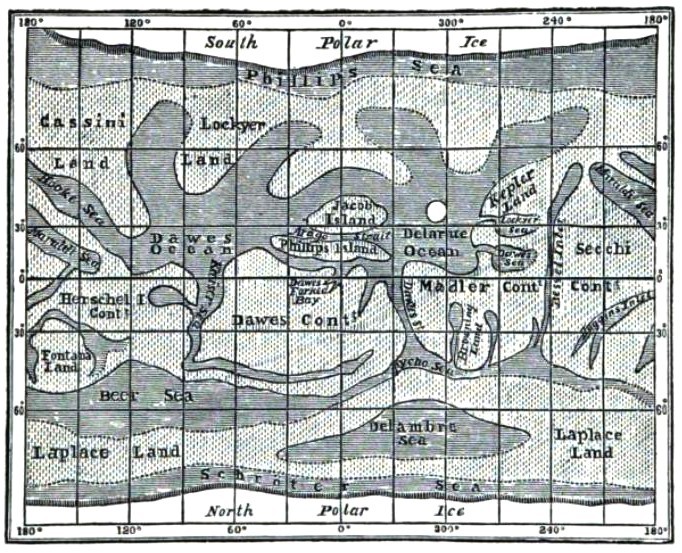
"The malady as diagnosed followed the typical course of languor and malaise, rapid prostration, remission, recurrence, collapse and insensibility, convulsion, black vomit, and death."
The 19th-century British astronomer Richard A. Proctor produced one of the first maps of Mars, but he was cut down in America at age 51 by the scourge of yellow fever. An excerpt from a report of his final hours in the September 13, 1888 New York Times:
“Prof. Richard A. Proctor, astronomer, lecturer, and author, died last night at the Willard Parker Hospital, Sixteenth-street and the East River, where he was quarantined as a yellow fever patient from Florida. He was prostrated in Room 88 at the Westminster Hotel Tuesday morning, and the malady as diagnosed followed the typical course of languor and malaise, rapid prostration, remission, recurrence, collapse and insensibility, convulsion, black vomit, and death. Prof. Proctor was at the time of the the attack suffering from cardiac uraemic troubles, and for some time it was suspected that a violent pilous attack aggravated and accelerated these affections, but the diagnoses of experts were apparently confirmed in his last moments, when the characteristic ejecta were noticed.
The Professor has a country seat and observatory at Oak Lawn, Marion County, Fla. He left there on Saturday, intending to sail for Europe on the 15th, and he was one of the first guests to register at the Hotel Westminster on Monday morning. He came here by rail and his family remained at Oak Lawn. He appeared fatigued and languid after he had taken a bath, but he was alert and bustling during the afternoon and evening. Tuesday morning he told a bell boy that he was ailing and asked for lemonade and a word with Boniface W.G. Schenck. Mr. Schenck admits that when he learned the Professor was not well he decided on ascertaining exactly what was the matter with him, because he came from Florida, so when he hailed him in the corridor outside his room in his customary hearty fashion he scanned him closely. The Professor, who looked like a very sick man, repeated his request for lemonade.
‘Better put a ‘stick’ in it, Professor,’ suggested Mr. Schenck, and the result was that the invalid drank a goblet of whisky and lemonade.
Then Mr. Schenck had a chat with his guest, and it prompted him to suggest that a physician be sent for. Prof. Proctor did not appear to consider that his condition warranted it, but he permitted Mr. Schenck to summon Dr. George S. Conant, who was once a diagnostician in the division of contagious diseases. After seeing his patient Dr. Conant visited Mr. Schenck and told him that the Professor was going to be a very sick man. He could not, he said, say what he believed was the matter with him, but his diagnosis warranted him in suggesting that an officer of the Board Of Health he called in consultation, and Dr. Cyrus Edson, Chief Inspector of Contagious Diseases, was summoned. He made up his mind in a few minutes, and told Mr. Schenck that it was extremely probable that the Professor would be dead in 10 or 12 hours of yellow fever, and suggested that his family be notified.”

